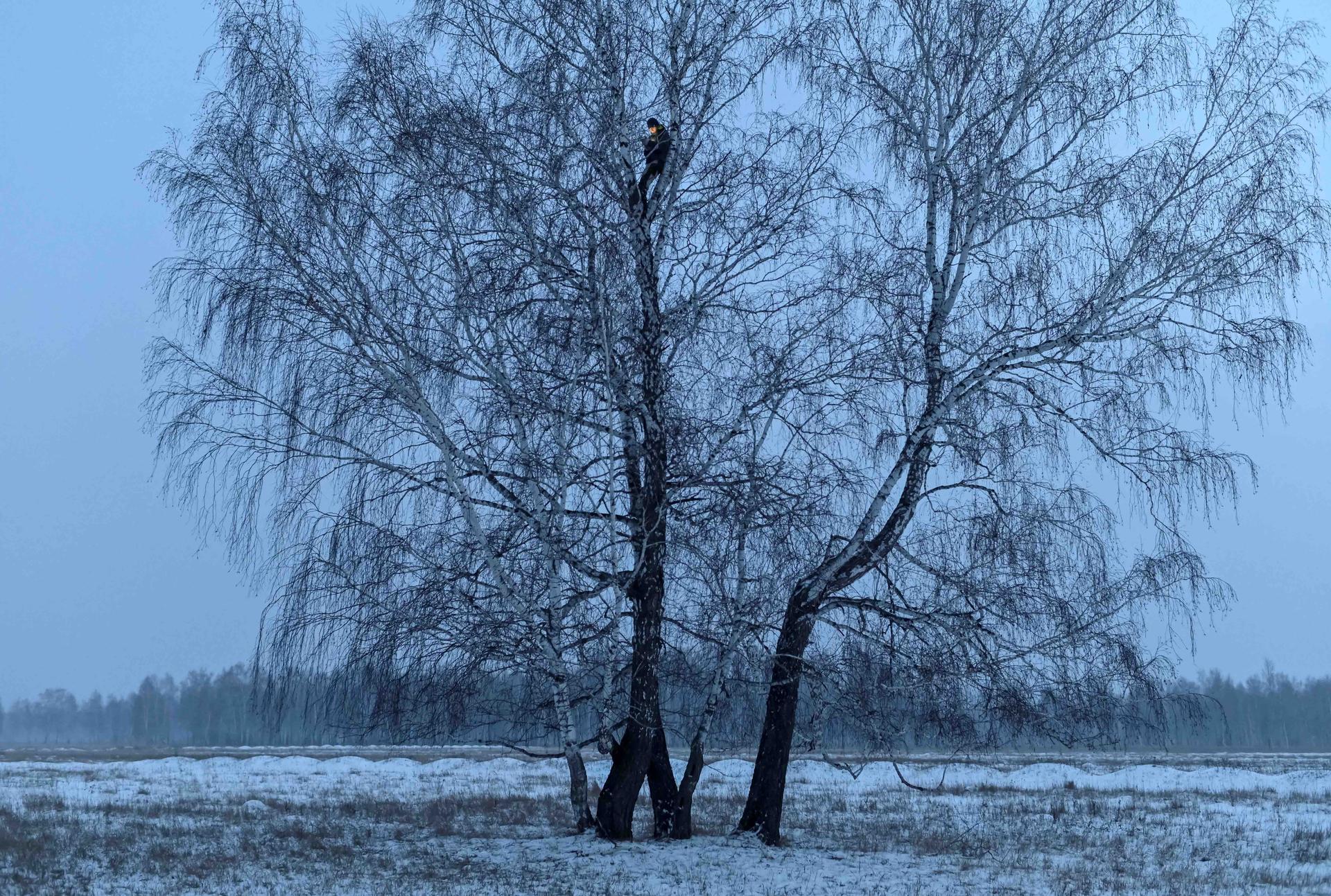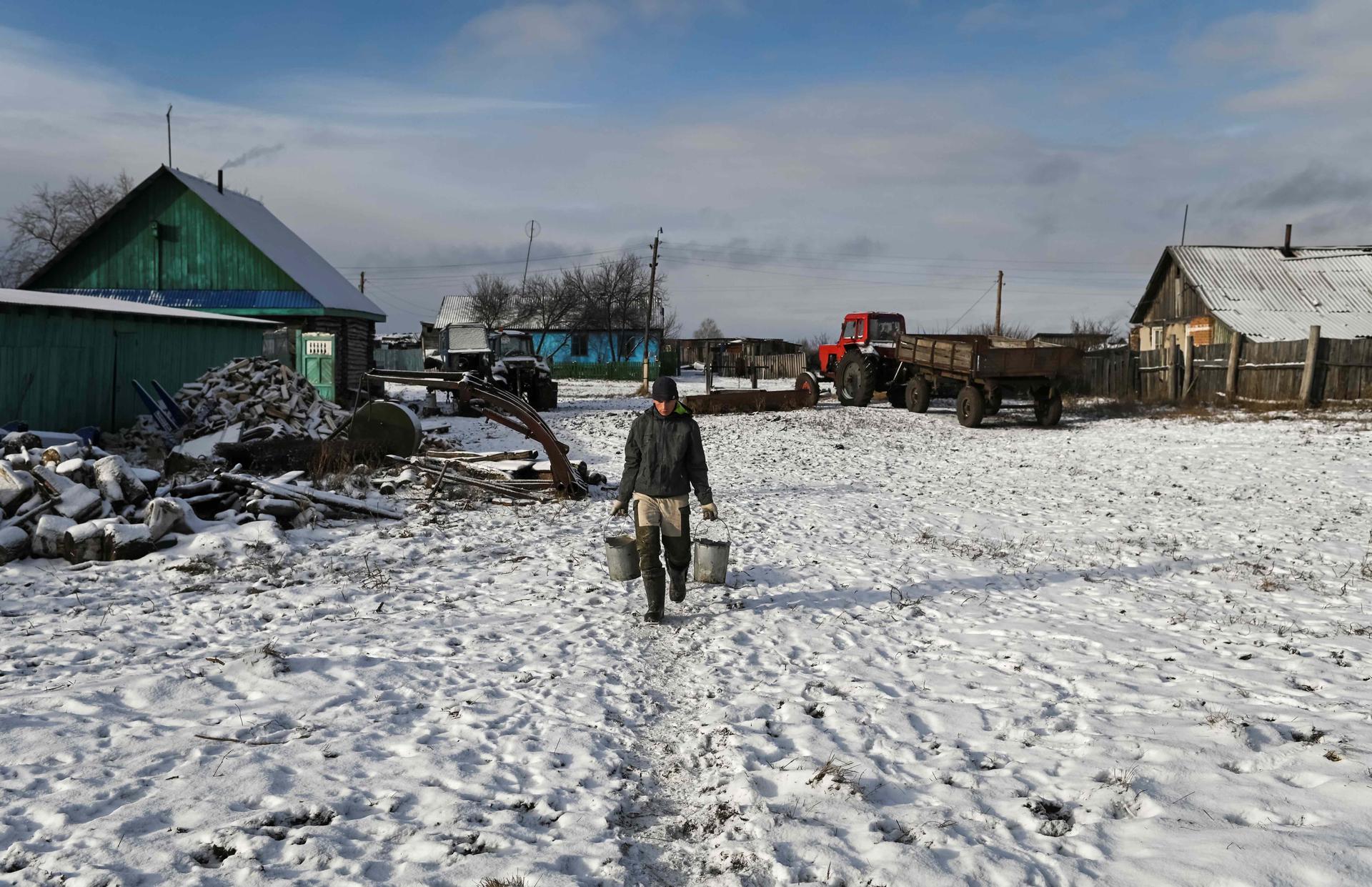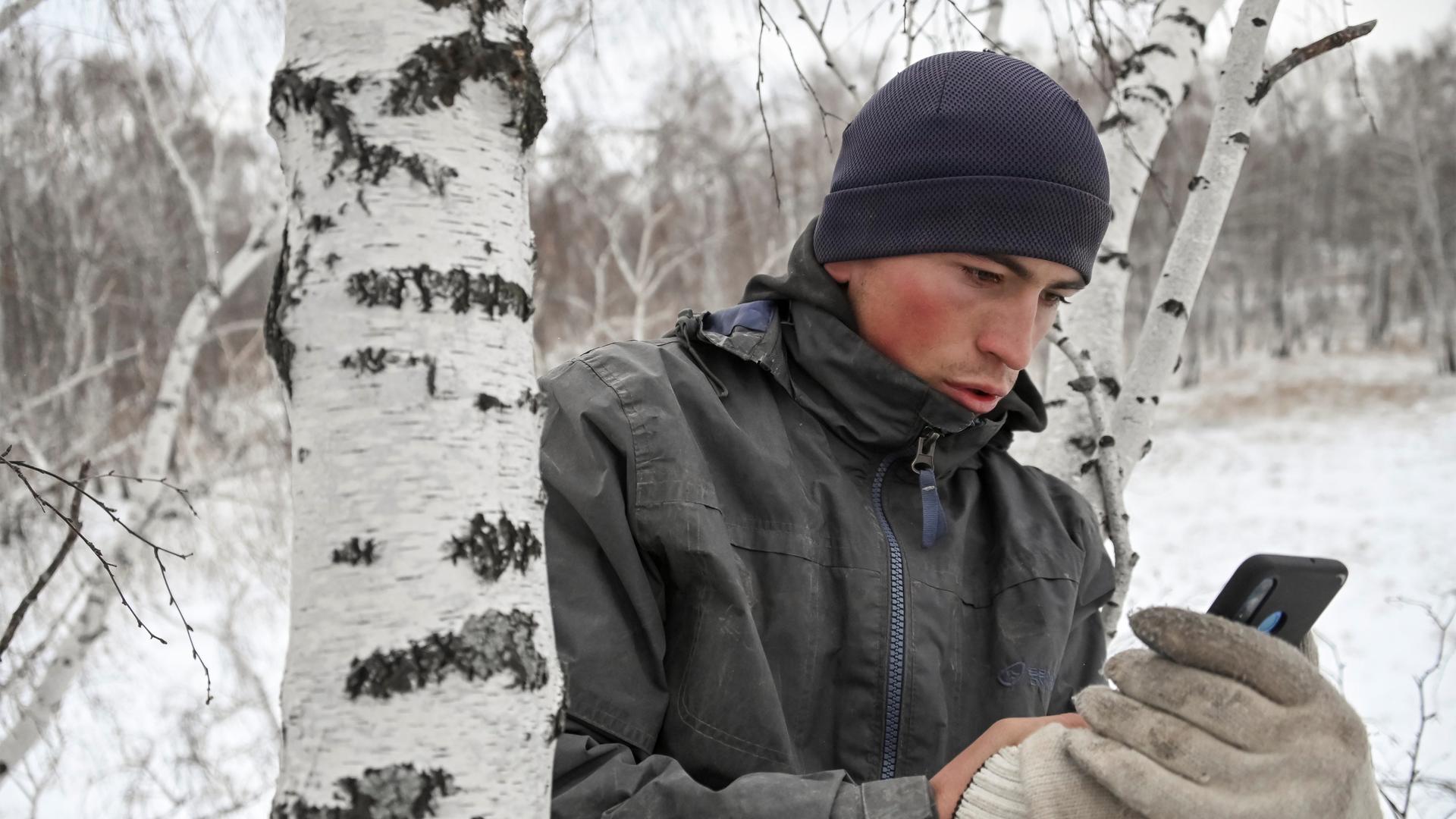Siberian student scales birch tree for internet access as classes move online
Alexei Dudoladov, as photographed in his remote Siberian village of Stankevichi, Russia, on Nov. 13, 2020.
During the coronavirus pandemic, working or studying from home requires logging onto Zoom or Skype. This is true for people living in large cities and even tiny villages around the world.
Take Stankevichi, Russia, a 39-inhabitant village deep in the Siberian region. That is where student Alexei Dudoladov has been forced to go to great lengths — or rather, great heights — to attend classes online. He must climb a birch tree in his remote hamlet every time he needs an internet connection.
The 21-year-old is a popular blogger and a student at the Omsk Institute of Water Transport, located 1,383 miles east of Moscow.
Dudoladov, who also works on his family’s farm, has been posting videos of his daily routine on social media and keeping up with Russian-language TikTok and Instagram for nearly a year.
Then the COVID-19 pandemic hit and authorities in several Russian regions moved university students to online classes to counter a surge in coronavirus cases. Dudoladov started to take classes online, but internet service at his family farm was patchy or non-existent.

“Our village has really bad internet, so I found a solution. I climbed a birch tree. Up there I got a pretty good signal. The internet was alright, so I started studying on the tree,” Dudoladov told The World.
But the arrival of the Siberian winter presented a new challenge for Dudaladov, who was spending long hours on top of a tree and under the elements. So he posted a video on social media appealing to Alexander Burkov, the regional governor, for a better internet connection — for himself and other students in Russia.
“I want to ask you on behalf of all students who have bad internet, how are we going to solve this problem?” Dudoladov asked in the video, which has since then caught national — and international — attention.

Dudoladov has been offered some help from people in Russia and other countries, but he is still waiting for a satisfactory solution from the governor. He has also been receiving messages from other students who have connectivity problems to access school work.
Dudoladov still catches the internet signal from the top of the tree but says he may know a guy who might be able to help.
“We hope that Elon Musk sends out his internet satellite system here so that we can have high-speed internet everywhere — not just in the US, but also here in Russia,” he says.
Reuters contributed to this report.
